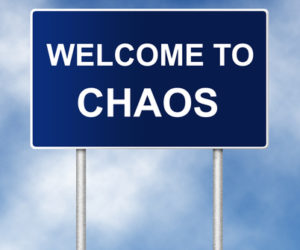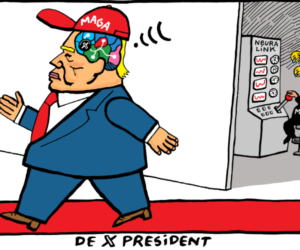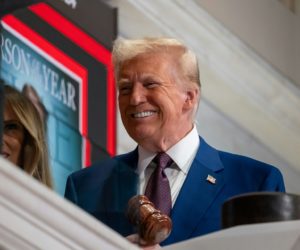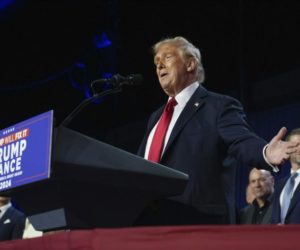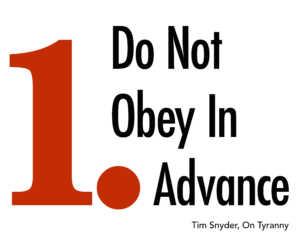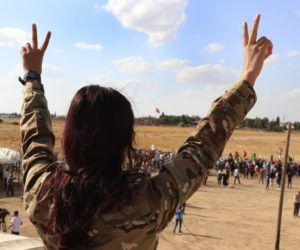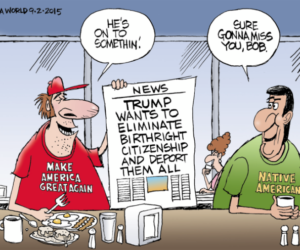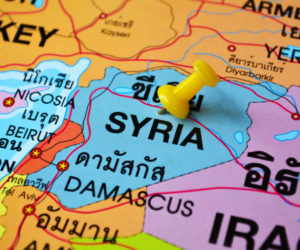In the wake of Arizona’s new anti-immigrant law, official boycotts have sprouted both nationally and internationally. Websites are in place, petitions are being signed, pledges not to do business in or with the state are circulating, and Arizona is feeling the first pinch. To date, 21 conventions and meetings have been cancelled, a number that has more than tripled in less than a week.
Boston has become the latest city to stop doing business with Arizona. It will pull Arizona investments, end Arizona contracts, halt Arizona purchasing and stop city employee travel to the state. Boston’s action follows Oakland and West Hollywood, with action being contemplated by New York City and Los Angeles, as other restrictions have been placed on travel and business by cities like St. Paul and San Francisco.
Last night “Los Suns”, aka the Phoenix Suns, took the court and pulled off a playoff win against the San Antonio Spurs. Prior to the game team majority owner, Robert Sarver, made it clear that wearing team jerseys that read “Los Suns” was intended as a protest against the new law as well as a salute to Cinco de Mayo. His statement included calling Arizona’s law “mean spirited.” NBA Commissioner David Stern called the team’s action “appropriate.”
Mayor Phil Gordon of Phoenix estimates that boycott and protest efforts have cost the city $6,000,000 so far, based on known impacts of the boycott. The cities of Tucson and Flagstaff are suing their home state in part because of the effects of the boycott, hoping to gain sympathy with boycott organizers to limit the impact on their cities.
Some Major League baseball players have announced their intention to boycott the 2011 All-Star game if it is held in Arizona. Commissioner Bud Selig has yet to announce his intentions.
Meanwhile, Arizona Governor Jan Brewer, who initially downplayed talk of a boycott as insignificant, has suddenly found it necessary to publicly ask people not to participate in the boycott. In her editorial for ESPN.com she argued that the Arizona law was passed only to “inspire” politicians in D. C. to take action, insisted that the law was not racially or ethnically targeted and implored that boycotts only hurt the “innocent” [she gave no direction on how to hurt the “guilty” who are responsible for the law].
But none of what has happened so far reflects the real concern. It’s what is under the radar, the “silent” boycott”, that really has business and political leaders worried. The actions and numbers showing up in the headlines are just the official measures. Those in the lodging, resort and tourist business are feeling the loss of previously scheduled conventions that have been cancelled, and expect more. But the serious whispers are about those planning conventions 2, 3, or 4 years out who will simply not consider an Arizona venue in the first place to avoid the controversy. Those losses are not subject to a clear count or proactive fiscal analysis.
As Arizona Hotel and Lodging Association President, Debbie Johnson, worried publicly,
“How many groups are we missing out on that would have come to Arizona, and now won’t even consider us?”
Business and political leaders can measure the losses from announced boycotts of Arizona business interests. What they can’t measure is how many businesses will not locate or expand in the state to avoid boycotts or how often Arizona business interests will be subjugated to second class status or non-consideration in the letting of future contracts.
And, none of the “official” measures accounts for the actions of individuals in response to calls to boycott the state. In one anecdotal account, the manager of a small Phoenix hotel reported receiving 80 cancellations in a single day. But nobody is “officially” tracking the cumulative total of those individual cancellations across the state or the compounding impact on other economic interests like food service, tourism, travel, shopping and the like.
When Arizona refused to recognize Martin Luther King, Jr. Day, it cost the state over 120 “official” convention/meeting cancellations, the loss of a Super Bowl and an estimated one third of billion dollars based on official measures. The “silent boycott” from that faux paus has never been accurately assessed. Now Arizona braces for another round of economic dislocation, once again because of racially insensitive policy choices. There will be official numbers and measures this time too, and so far they are running ahead of the MLK boycott numbers. But those in the trenches know that the real impact cannot be accurately measured and that the “silent boycott”, which will never be quantified, is where the real fear lies.
[Author’s Note: the image is of the Phoenix Suns basketball team wearing “Los Suns” jerseys for last night’s game]
Cross posted at Elijah’s Sweete Spot, where COMMENTS/DISCUSSION are Disqus™ enabled.
Contributor, aka tidbits. Retired attorney in complex litigation, death penalty defense and constitutional law. Former Nat’l Board Chair: Alzheimer’s Association. Served on multiple political campaigns, including two for U.S. Senator Mark O. Hatfield (R-OR). Contributing author to three legal books and multiple legal publications.



